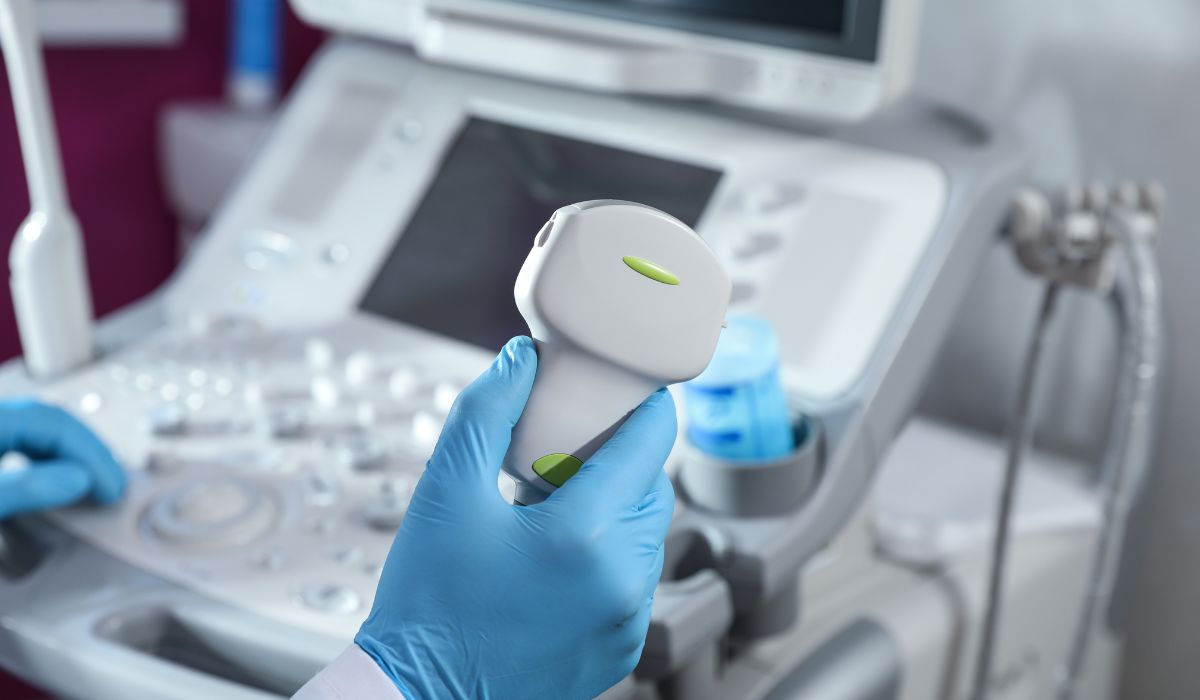How to Become an Ultrasound Technician: A Complete Guide
5 min read
Becoming an ultrasound technician is a rewarding career choice for those interested in healthcare and medical technology. Ultrasound technicians, also known as diagnostic medical sonographers, use specialized equipment to capture images of the inside of the body, helping doctors diagnose and treat various conditions. If you’re considering this career, this guide will walk you through everything you need to know, from the required education to certification, job opportunities, and skills needed to succeed.
What is an Ultrasound Technician?

An ultrasound technician (or sonographer) is a healthcare professional who uses ultrasound technology to create images of organs, tissues, and blood flow inside the body. These images, known as sonograms, are essential for diagnosing medical conditions like pregnancy, heart disease, and cancer. Ultrasound technicians work closely with doctors, nurses, and patients to gather crucial diagnostic information.
Key Responsibilities
- Operating ultrasound machines to capture high-quality images
- Preparing patients for procedures by explaining what to expect
- Analyzing images and sharing findings with doctors
- Maintaining and cleaning ultrasound equipment
- Ensuring patient comfort during procedures
What Education is Required to Become an Ultrasound Technician?
To become an ultrasound technician, you typically need to complete an accredited sonography program. These programs offer a combination of classroom instruction and clinical training to help you gain the skills required for the job. The most common education paths are an associate degree or a bachelor’s degree in diagnostic medical sonography.
Steps to Becoming an Ultrasound Technician:
- Complete a High School Diploma or GED: Before entering a sonography program, you’ll need a high school diploma or equivalent. Focus on courses in biology, chemistry, and physics to build a strong foundation.
- Enroll in an Accredited Sonography Program: Look for programs accredited by the Commission on Accreditation of Allied Health Education Programs (CAAHEP) or the Accreditation Commission for Education in Nursing (ACEN). These programs usually take 2-4 years, depending on whether you pursue an associate or bachelor’s degree.
- Gain Clinical Experience: During your program, you’ll need to complete hands-on clinical training, where you’ll work in real medical settings under the supervision of experienced professionals.
- Earn Certification: While certification isn’t always mandatory, most employers prefer ultrasound technicians to be certified by organizations like the American Registry for Diagnostic Medical Sonography (ARDMS).
How Long Does It Take to Become an Ultrasound Technician?

The time it takes to become an ultrasound technician depends on the educational path you choose:
- Associate Degree: This is the most common path and typically takes about 2 years to complete.
- Bachelor’s Degree: If you choose to pursue a bachelor’s degree, it may take 4 years.
- Certification: Some people choose to become certified sonographers after completing a related degree. Depending on the program, certification exams can be completed after 2-3 years of education and training.
Certification and Licensing Requirements
While certification isn’t always required, obtaining certification can significantly enhance your job prospects and earning potential. The most recognized certification for ultrasound technicians is the ARDMS certification.
How to Get Certified:
- Complete an Accredited Program: Most certification bodies, like ARDMS, require candidates to have completed a formal education program.
- Pass the Certification Exam: To become certified, you’ll need to pass one or more exams in sonography. The ARDMS offers certifications in various specialties like abdominal, obstetric, and vascular sonography.
- State Licensing: In some states, you may need to obtain a state license in addition to national certification. Licensing requirements vary, so be sure to check your state’s regulations.
Specializations for Ultrasound Technicians
Ultrasound technicians can specialize in several areas of medical imaging, depending on their interests and career goals. Specializations often come with higher pay and increased job opportunities.
Common Specializations Include:
- Obstetric and Gynecological (OB/GYN) Sonography: Specializing in imaging during pregnancy and female reproductive health.
- Cardiac Sonography (Echocardiography): Focusing on imaging the heart and diagnosing cardiovascular conditions.
- Vascular Sonography: Specializing in imaging blood vessels to identify conditions like blood clots or blocked arteries.
- Abdominal Sonography: Concentrating on imaging organs in the abdominal region, such as the liver, pancreas, and kidneys.
Skills Required to Be an Ultrasound Technician

To excel as an ultrasound technician, you’ll need a combination of technical, clinical, and interpersonal skills.
Technical Skills:
- Operating Ultrasound Equipment: Ultrasound technicians need to know how to operate sophisticated medical imaging equipment and adjust settings for optimal image quality.
- Analyzing and Interpreting Images: While you won’t diagnose the conditions, you’ll need to identify the features of the images to help doctors with their diagnosis.
Clinical Skills:
- Patient Care: You’ll work closely with patients, so strong interpersonal skills are essential. Explaining procedures, making patients feel comfortable, and maintaining patient privacy are key aspects of your role.
Personal Attributes:
- Attention to Detail: The accuracy of your imaging is critical for an accurate diagnosis.
- Physical Stamina: As you’ll be on your feet for long hours and may need to assist with patient positioning, physical endurance is important.
Job Outlook and Salary for Ultrasound Technicians
The demand for ultrasound technicians is growing. According to the U.S. Bureau of Labor Statistics, the employment of diagnostic medical sonographers is expected to grow by 14% from 2021 to 2031, much faster than the average for other occupations.
Salary:
- The median annual wage for ultrasound technicians in 2022 was around $77,000, but this can vary based on location, specialization, and experience. Technicians who specialize in cardiac or vascular sonography often earn higher salaries.
Job Opportunities and Work Environments
Ultrasound technicians are employed in various healthcare settings, including:
- Hospitals: The largest employers of sonographers, offering diverse opportunities in different specialties.
- Private Clinics and Offices: Smaller settings focusing on outpatient care and imaging.
- Medical Imaging Centers: Facilities dedicated to diagnostic imaging, where technicians may work with specialized equipment.
- Mobile Imaging Services: Some ultrasound technicians work with mobile diagnostic teams, visiting multiple locations.
Challenges and Rewards of Being an Ultrasound Technician
Like any healthcare career, working as an ultrasound technician comes with its challenges. The job can be physically demanding, especially when working with patients who have mobility issues or need assistance. You’ll also need to be prepared for emotionally challenging situations, such as delivering difficult news to patients.
However, the rewards of being an ultrasound technician are significant. Not only do you play a critical role in diagnosing medical conditions, but the career offers job stability, competitive pay, and a sense of fulfillment from helping people.
Conclusion
Becoming an ultrasound technician can be a fulfilling career choice with many opportunities for advancement and specialization. With the right education, certification, and skills, you can enter a growing field with a high demand for professionals. Whether you work in a hospital, a private practice, or a specialized medical imaging center, the role of an ultrasound technician is critical to patient care and diagnosis.
If you’re interested in pursuing this career, take the first step today by exploring accredited sonography programs in your area and preparing for a rewarding journey in healthcare!






